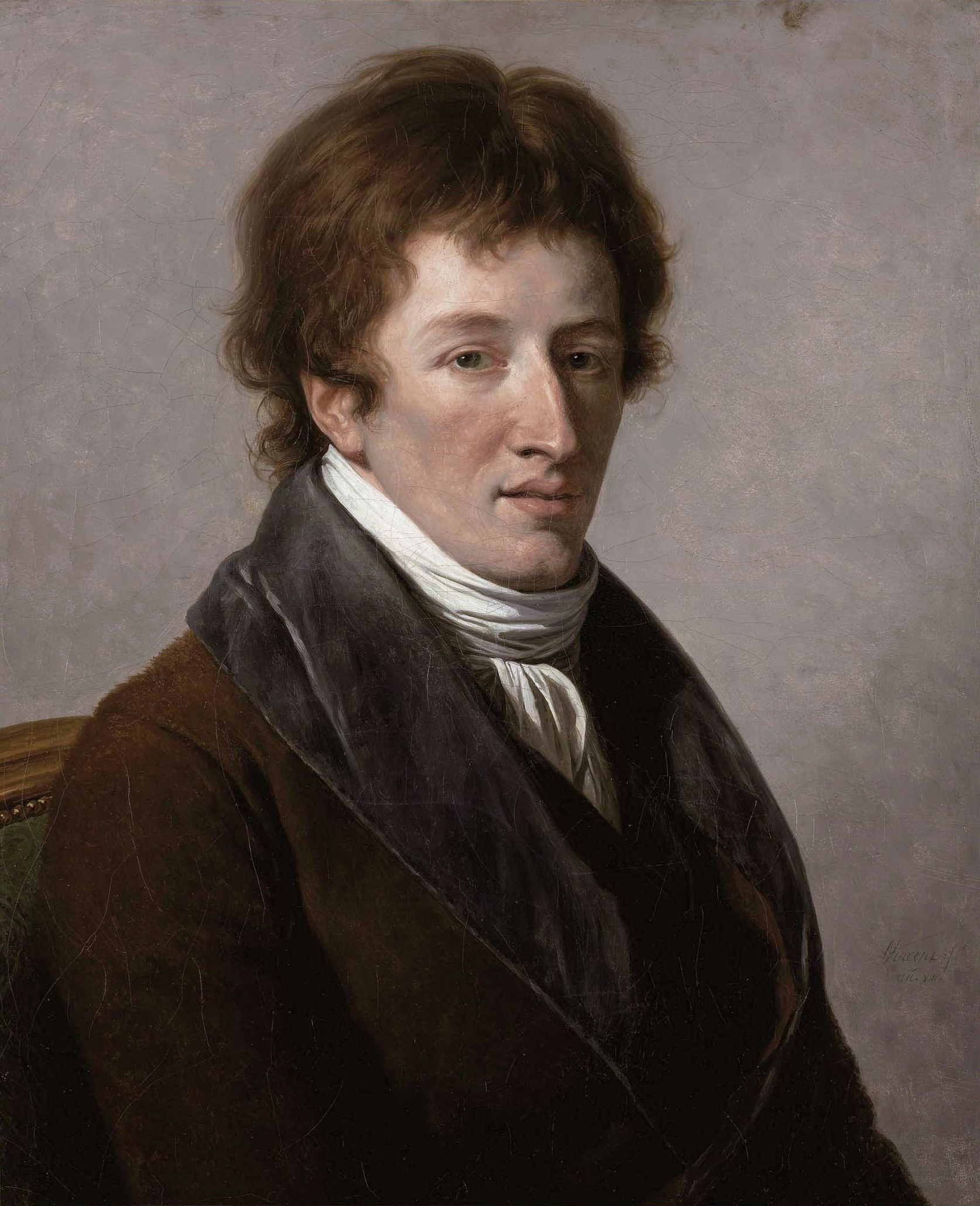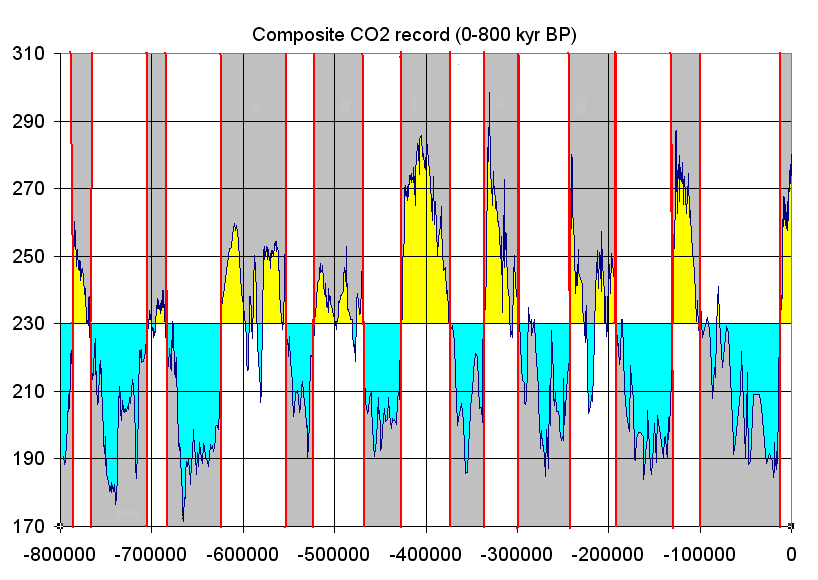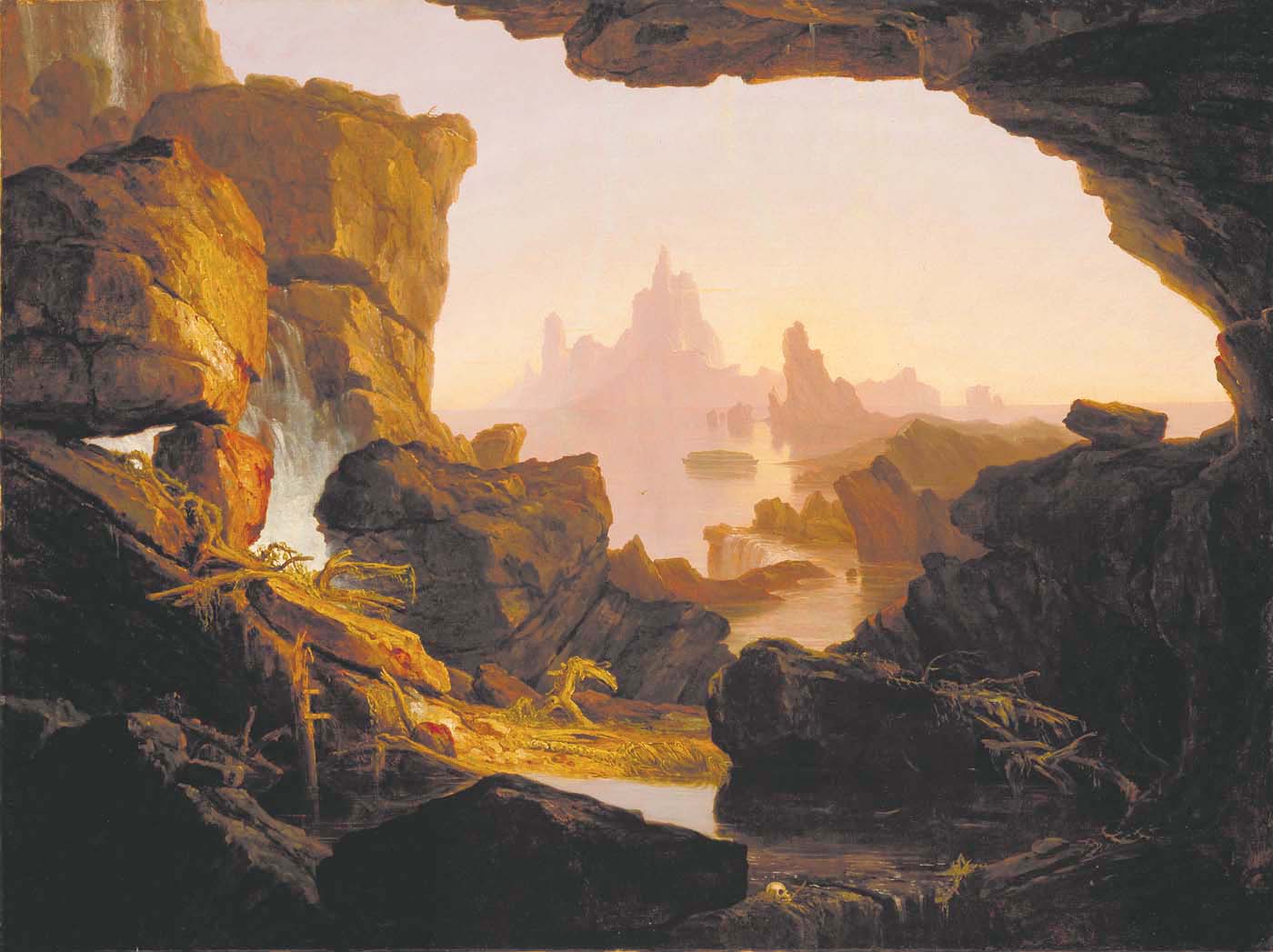|
Catastrophist
In geology, catastrophism theorises that the Earth has largely been shaped by sudden, short-lived, violent events, possibly worldwide in scope. This contrasts with uniformitarianism (sometimes called gradualism), according to which slow incremental changes, such as erosion, brought about all the Earth's geological features. The proponents of uniformitarianism held that the present was "the key to the past", and that all geological processes (such as erosion) throughout the past resembled those that can be observed today. Since the 19th-century disputes between catastrophists and uniformitarians, a more inclusive and integrated view of geologic events has developed, in which the scientific consensus accepts that some catastrophic events occurred in the geologic past, but regards these as explicable as extreme examples of natural processes which can occur. Proponents of catastrophism proposed that each geological epoch ended with violent and sudden natural catastrophes such as maj ... [...More Info...] [...Related Items...] OR: [Wikipedia] [Google] [Baidu] |
Georges Cuvier
Jean Léopold Nicolas Frédéric, Baron Cuvier (; 23 August 1769 – 13 May 1832), known as Georges Cuvier, was a French natural history, naturalist and zoology, zoologist, sometimes referred to as the "founding father of paleontology". Cuvier was a major figure in natural sciences research in the early 19th century and was instrumental in establishing the fields of comparative anatomy and paleontology through his work in comparing living animals with fossils. Cuvier's work is considered the foundation of vertebrate paleontology, and he expanded Linnaean taxonomy by grouping classes into phylum, phyla and incorporating both fossils and living species into the classification. Cuvier is also known for establishing extinction as a fact—at the time, extinction was considered by many of Cuvier's contemporaries to be merely controversial speculation. In his ''Essay on the Theory of the Earth'' (1813) Cuvier proposed that now-extinct species had been wiped out by periodic catastrophi ... [...More Info...] [...Related Items...] OR: [Wikipedia] [Google] [Baidu] |
Geology
Geology () is a branch of natural science concerned with Earth and other astronomical objects, the features or rocks of which it is composed, and the processes by which they change over time. Modern geology significantly overlaps all other Earth sciences, including hydrology, and so is treated as one major aspect of integrated Earth system science and planetary science. Geology describes the structure of the Earth on and beneath its surface, and the processes that have shaped that structure. It also provides tools to determine the relative and absolute ages of rocks found in a given location, and also to describe the histories of those rocks. By combining these tools, geologists are able to chronicle the geological history of the Earth as a whole, and also to demonstrate the age of the Earth. Geology provides the primary evidence for plate tectonics, the evolutionary history of life, and the Earth's past climates. Geologists broadly study the properties and processes of E ... [...More Info...] [...Related Items...] OR: [Wikipedia] [Google] [Baidu] |
Greeks
The Greeks or Hellenes (; el, Έλληνες, ''Éllines'' ) are an ethnic group and nation indigenous to the Eastern Mediterranean and the Black Sea regions, namely Greece, Cyprus, Albania, Italy, Turkey, Egypt, and, to a lesser extent, other countries surrounding the Mediterranean Sea. They also form a significant diaspora (), with Greek communities established around the world.. Greek colonies and communities have been historically established on the shores of the Mediterranean Sea and Black Sea, but the Greek people themselves have always been centered on the Aegean and Ionian seas, where the Greek language has been spoken since the Bronze Age.. Until the early 20th century, Greeks were distributed between the Greek peninsula, the western coast of Asia Minor, the Black Sea coast, Cappadocia in central Anatolia, Egypt, the Balkans, Cyprus, and Constantinople. Many of these regions coincided to a large extent with the borders of the Byzantine Empire of the late 11th cent ... [...More Info...] [...Related Items...] OR: [Wikipedia] [Google] [Baidu] |
Glaciation
A glacial period (alternatively glacial or glaciation) is an interval of time (thousands of years) within an ice age that is marked by colder temperatures and glacier advances. Interglacials, on the other hand, are periods of warmer climate between glacial periods. The Last Glacial Period ended about 15,000 years ago. The Holocene is the current interglacial. A time with no glaciers on Earth is considered a greenhouse climate state. Quaternary Period Within the Quaternary, which started about 2.6 million years before present, there have been a number of glacials and interglacials. At least eight glacial cycles have occurred in the last 740,000 years alone. Penultimate Glacial Period The Penultimate Glacial Period (PGP) is the glacial period that occurred before the Last Glacial Period. It began about 194,000 years ago and ended 135,000 years ago, with the beginning of the Eemian interglacial. Last Glacial Period The last glacial period was the most recent glacial period ... [...More Info...] [...Related Items...] OR: [Wikipedia] [Google] [Baidu] |
Flood Geology
Flood geology (also creation geology or diluvial geology) is a pseudoscientific attempt to interpret and reconcile geological features of the Earth in accordance with a literal belief in the global flood described in Genesis 6–8. In the early 19th century, diluvial geologists hypothesized that specific surface features provided evidence of a worldwide flood which had followed earlier geological eras; after further investigation they agreed that these features resulted from local floods or from glaciers. In the 20th century, young-Earth creationists revived flood geology as an overarching concept in their opposition to evolution, assuming a recent six-day Creation and cataclysmic geological changes during the biblical flood, and incorporating creationist explanations of the sequences of rock strata. In the early stages of development of the science of geology, fossils were interpreted as evidence of past flooding. The "theories of the Earth" of the 17th century proposed m ... [...More Info...] [...Related Items...] OR: [Wikipedia] [Google] [Baidu] |
Robert Jameson
Robert Jameson Robert Jameson FRS FRSE (11 July 1774 – 19 April 1854) was a Scottish naturalist and mineralogist. As Regius Professor of Natural History at the University of Edinburgh for fifty years, developing his predecessor John Walker's concepts based on mineralogy into geological theories of Neptunism which held sway into the 1830s. Jameson is notable for his advanced scholarship, and his museum collection. The minerals and fossils collection of the Museum of Edinburgh University became one of the largest in Europe during Jameson's long tenure at the university. Early life Jameson was born in Leith on 11 July 1774, the son of Catherine Paton (1750–94) and Thomas Jameson (c.1750–1802), a soap manufacturer on Rotten Row (now Water Street). They lived on Sherrif Brae. His early education was spent at Leith Grammar School, after which he became the apprentice of the Leith surgeon John Cheyne (father of John Cheyne), with the aim of going to sea. He also atte ... [...More Info...] [...Related Items...] OR: [Wikipedia] [Google] [Baidu] |
William Buckland
William Buckland Doctor of Divinity, DD, Royal Society, FRS (12 March 1784 – 14 August 1856) was an English theologian who became Dean of Westminster. He was also a geologist and paleontology, palaeontologist. Buckland wrote the first full account of a fossil dinosaur, which he named ''Megalosaurus''. His work proved that Kirkdale Cave in North Yorkshire had been a prehistoric hyena den, for which he was awarded the Copley Medal. It was praised as an example of how scientific analysis could reconstruct distant events. He pioneered the use of fossilised Feces, faeces in reconstructing ecosystems, coining the term coprolites. Buckland followed the Gap creationism, Gap Theory in interpreting the biblical account of ''Genesis'' as two widely separated episodes of creation. It had emerged as a way to reconcile the scriptural account with discoveries in geology suggesting the earth was very old. Early in his career Buckland believed he had found evidence of the Deluge myth, biblic ... [...More Info...] [...Related Items...] OR: [Wikipedia] [Google] [Baidu] |
Natural Theology
Natural theology, once also termed physico-theology, is a type of theology that seeks to provide arguments for theological topics (such as the existence of a deity) based on reason and the discoveries of science. This distinguishes it from revealed theology, which is based on scripture and/or religious experiences, also from transcendental theology, which is based on ''a priori'' reasoning. It is thus a type of philosophy, with the aim of explaining the nature of the celestial motors, or gods, or of one supreme god, that are responsible for heavenly motion. Aristotle's tractate on metaphysics claims to demonstrate the necessary existence of an unmoved prime mover. For monotheistic religions, this principally involves arguments about the attributes or non-attributes of a deity, and especially the deity's existence, using arguments that do not involve recourse to revelation. The ideals of natural theology can be traced back to the Old Testament and Greek philosophy. Ear ... [...More Info...] [...Related Items...] OR: [Wikipedia] [Google] [Baidu] |
Stratigraphic
Stratigraphy is a branch of geology concerned with the study of rock layers (strata) and layering (stratification). It is primarily used in the study of sedimentary and layered volcanic rocks. Stratigraphy has three related subfields: lithostratigraphy (lithologic stratigraphy), biostratigraphy (biologic stratigraphy), and chronostratigraphy (stratigraphy by age). Historical development Catholic priest Nicholas Steno established the theoretical basis for stratigraphy when he introduced the law of superposition, the principle of original horizontality and the principle of lateral continuity in a 1669 work on the fossilization of organic remains in layers of sediment. The first practical large-scale application of stratigraphy was by William Smith in the 1790s and early 19th century. Known as the "Father of English geology", Smith recognized the significance of strata or rock layering and the importance of fossil markers for correlating strata; he created the first geologic map o ... [...More Info...] [...Related Items...] OR: [Wikipedia] [Google] [Baidu] |
French Revolution
The French Revolution ( ) was a period of radical political and societal change in France that began with the Estates General of 1789 and ended with the formation of the French Consulate in November 1799. Many of its ideas are considered fundamental principles of liberal democracy, while phrases like ''liberté, égalité, fraternité'' reappeared in other revolts, such as the 1917 Russian Revolution, and inspired campaigns for the abolition of slavery and universal suffrage. The values and institutions it created dominate French politics to this day. Its causes are generally agreed to be a combination of social, political and economic factors, which the ''Ancien Régime'' proved unable to manage. In May 1789, widespread social distress led to the convocation of the Estates General, which was converted into a National Assembly in June. Continuing unrest culminated in the Storming of the Bastille on 14 July, which led to a series of radical measures by the Assembly, i ... [...More Info...] [...Related Items...] OR: [Wikipedia] [Google] [Baidu] |
Age Of Enlightenment
The Age of Enlightenment or the Enlightenment; german: Aufklärung, "Enlightenment"; it, L'Illuminismo, "Enlightenment"; pl, Oświecenie, "Enlightenment"; pt, Iluminismo, "Enlightenment"; es, La Ilustración, "Enlightenment" was an intellectual and philosophical movement that dominated Europe in the 17th and 18th centuries with global influences and effects. The Enlightenment included a range of ideas centered on the value of human happiness, the pursuit of knowledge obtained by means of reason and the evidence of the senses, and ideals such as liberty, progress, toleration, fraternity, and constitutional government. The Enlightenment was preceded by the Scientific Revolution and the work of Francis Bacon, John Locke, and others. Some date the beginning of the Enlightenment to the publication of René Descartes' ''Discourse on the Method'' in 1637, featuring his famous dictum, ''Cogito, ergo sum'' ("I think, therefore I am"). Others cite the publication of Isaac Newto ... [...More Info...] [...Related Items...] OR: [Wikipedia] [Google] [Baidu] |
Fossil
A fossil (from Classical Latin , ) is any preserved remains, impression, or trace of any once-living thing from a past geological age. Examples include bones, shells, exoskeletons, stone imprints of animals or microbes, objects preserved in amber, hair, petrified wood and DNA remnants. The totality of fossils is known as the ''fossil record''. Paleontology is the study of fossils: their age, method of formation, and evolutionary significance. Specimens are usually considered to be fossils if they are over 10,000 years old. The oldest fossils are around 3.48 billion years old to 4.1 billion years old. Early edition, published online before print. The observation in the 19th century that certain fossils were associated with certain rock strata led to the recognition of a geological timescale and the relative ages of different fossils. The development of radiometric dating techniques in the early 20th century allowed scientists to quantitatively measure the ... [...More Info...] [...Related Items...] OR: [Wikipedia] [Google] [Baidu] |








